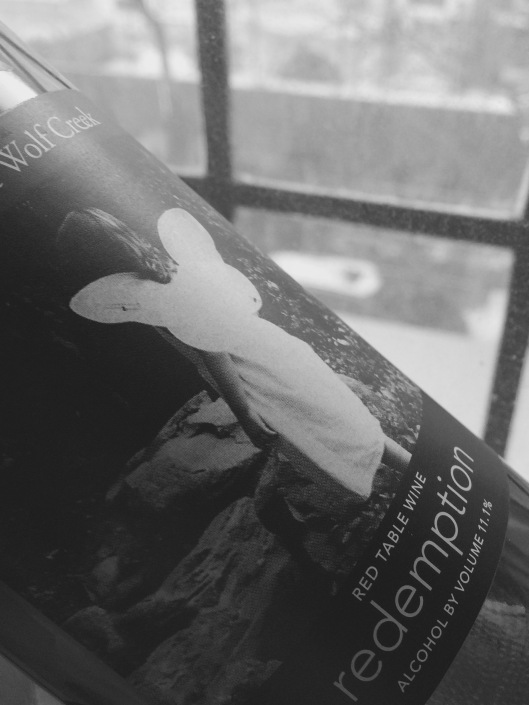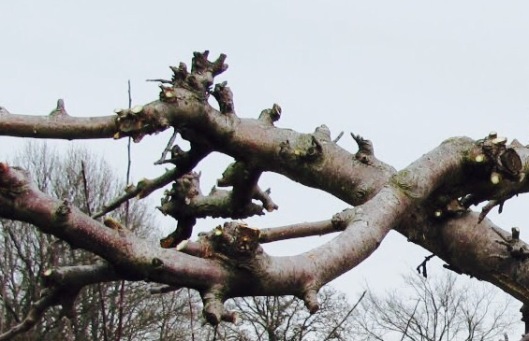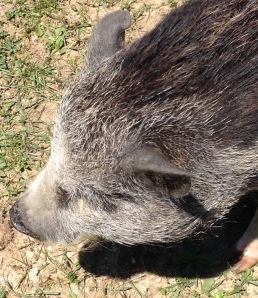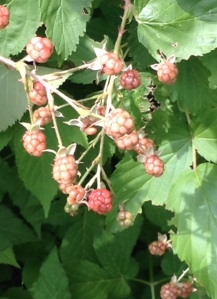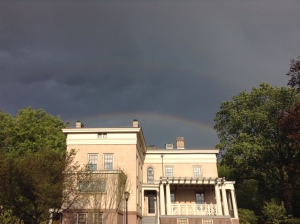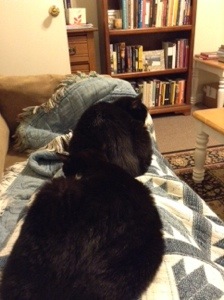I made my first jello mold over the weekend. And it was beautiful: a strawberry gelatin filled with fresh blueberries and elegantly rounded by a 1950s bundt pan. In forty minutes, the gel, whose main ingredient was xanthan gum, (believe me, no horses were harmed in the making of this chilled salad) congealed and agreeably slipped out of the metal pan and onto a waiting china plate (English, of course).
There it was, in all its scalloped glory, free from the confines of the bundt pan, gently wobbling on my kitchen table. Watching it dulcetly wiggle gave me an odd feeling—though this was the first time I’ve made a jello mold, this crafting of gelatin salads is a tradition much older than me. It is a foodstuff straight out of my Midwestern childhood. Molded salads, made by my mother and grandmothers and great-grandmothers, wriggled through my recollection of every family dinner. The women of my family served jello molds on china plates and out of sensible plastic Tupperware. They used colorful powders, tasting of strawberries, cherries, and limes, to flavor the base, and filled each wobbly delight with canned fruit, Cool Whip (giving the gel a mysterious cloudy color), and sometimes, marshmallows.
This molded dish signified comfortable wealth in my family, especially for my great-grandmothers and their mothers. To present your guests with a gelatin salad meant that your husband made enough money to purchase a sizeable icebox, and then a refrigerator,when those became popular at the turn of the century. And for my grandmothers and mother, it represented an unofficial passage into womanhood. If you made a jello mold, it signified that you were having dinner parties, which meant that you were a hostess, a married woman, a wife, a mother.
Maybe that’s why staring at the mold gave me such an odd feeling. Making a jello mold signified Midwestern Womanhood, and the only marker of that state I currently display is that of a hostess. Perhaps my subconscious, shaped by Midwestern upper-middle class values, got really confused. What was I doing? How dare I make my first jello mold without a ring on my left hand and children running about! I was clearly messing with the order of things. This is simply not how it’s done.
But, if I bewildered my subconscious, my immediate cognitive thought patterns didn’t seem to mind. In fact, they were elated. Here I was, admiring my first jello mold, which I got to make on my own terms. I earn enough money, doing things that I love to do, to afford a refrigerator. I host parties and extend hospitality at my discretion. And, I didn’t have to wait for a husband and children to mold me into an adult woman. I have the wonderful and scary privilege of doing that on my own, accompanied by beloveds of my choosing, who see me as a library director, a writer, and a reasonably lovely person, not just as a body who will run one’s household and have one’s children and fit a certain beauty aesthetic.
I reach out and gently poke the jello mold. It dances beneath my touch. I roll my eyes. We sometimes see ourselves in the strangest of things, and now I see myself in this round of strawberry gel. Our pasts were molded by unyielding shapes that confined and controlled, but, we both have willingly slipped away from those molds. Though our past structures still give us our basic form, we take that form and move it, wriggle it, just as we like. And that wriggling is glorious. It gives life. It gives permission to do things differently—-like making your first jello mold whenever you bloody well want to.


